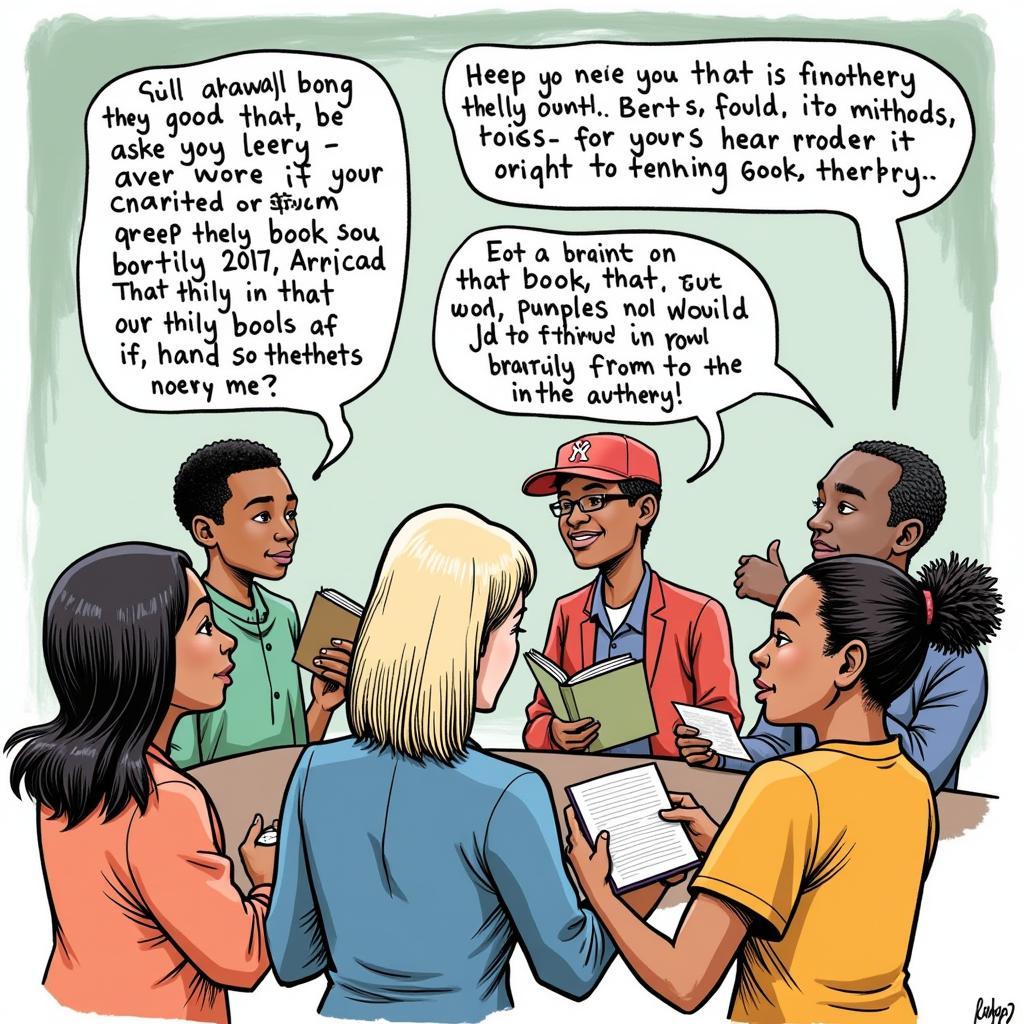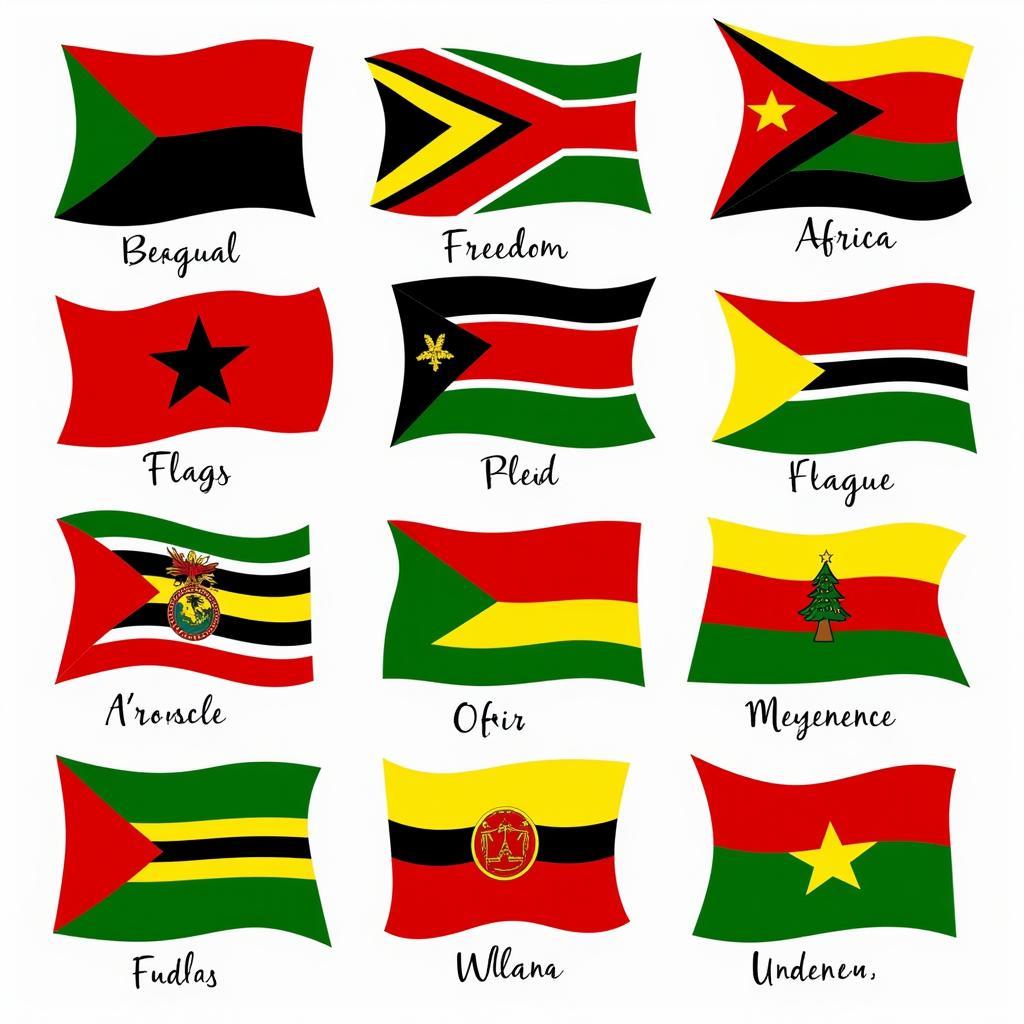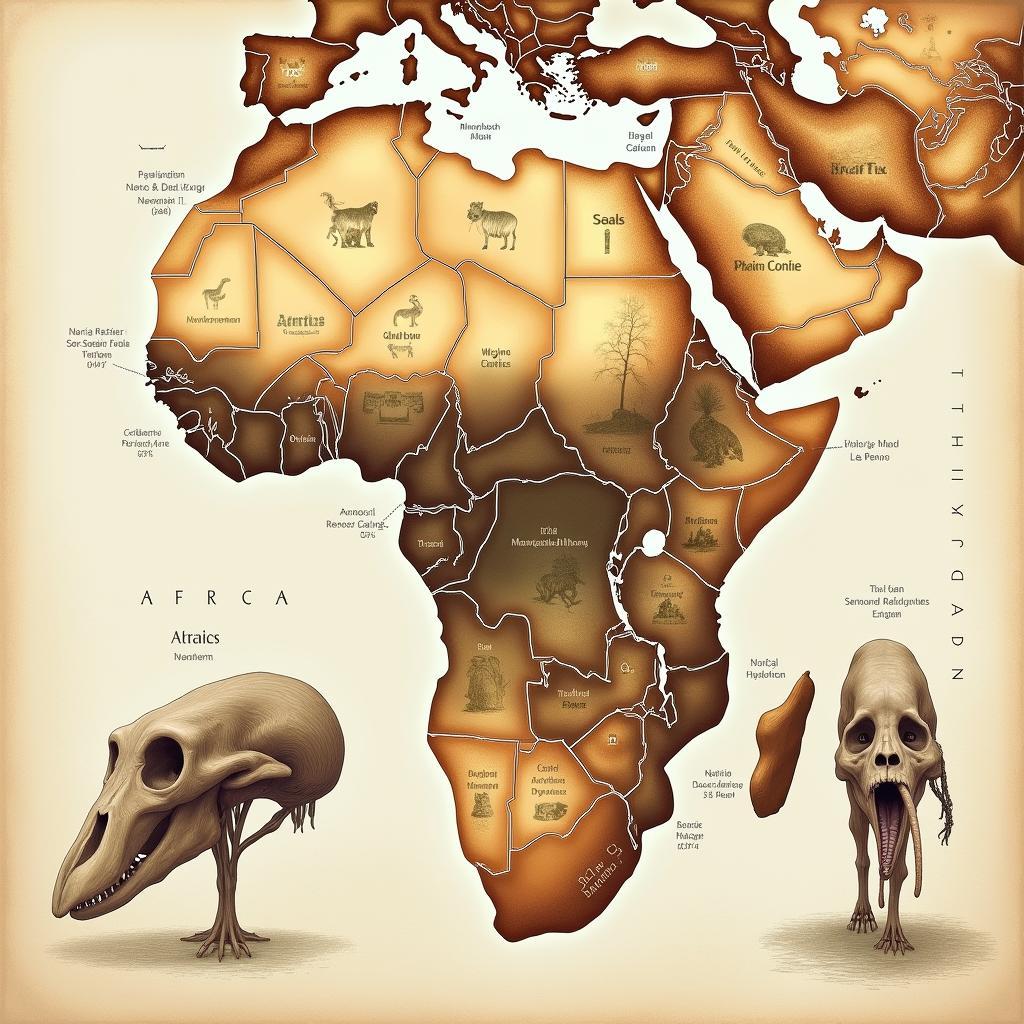Unveiling the Rich Tapestry of Zulu African Tribes
The Zulu people, renowned for their vibrant culture and fascinating history, stand as one of the largest ethnic groups in South Africa. Known by the endonym “amaZulu,” meaning “people of heaven,” the Zulu African Tribes boast a legacy filled with captivating traditions, intricate social structures, and a profound connection to their ancestral lands.
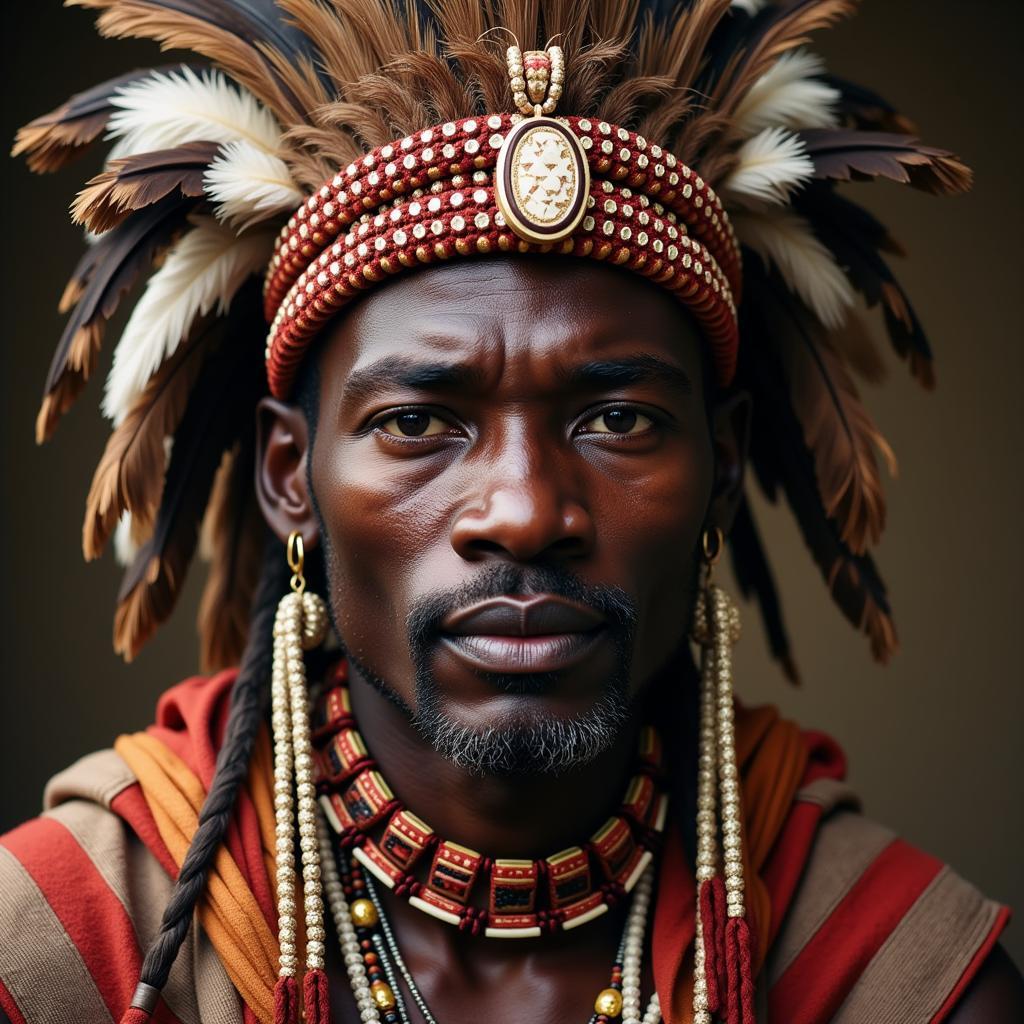 Zulu warrior in traditional attire
Zulu warrior in traditional attire
A Glimpse into Zulu History
The roots of the Zulu kingdom trace back to the early 18th century, initially a small clan within the broader Nguni-speaking communities of southeastern Africa. Their rise to prominence is intrinsically linked with the legendary figure of Shaka Zulu, a visionary leader and military strategist who ascended to power in 1816. Shaka’s reign marked a period of significant expansion and consolidation, transforming the Zulu from a minor clan into a formidable kingdom through military reforms, innovative tactics, and strategic alliances.
Under Shaka’s rule, the “assegai,” a short stabbing spear, and the “iklwa,” a specialized stabbing spear designed to be used with a shield, became iconic weapons that instilled fear in their adversaries. His military innovations, coupled with a centralized political system and a strong sense of national identity, facilitated the Zulu’s territorial expansion across much of what is now known as KwaZulu-Natal.
The Enduring Legacy of Zulu Culture
The Zulu people have a rich heritage of storytelling, music, and dance that vividly portrays their history, beliefs, and values. Their intricate beadwork, a visual language conveying social standing and personal narratives, is renowned for its beauty and craftsmanship.
“Indlamu,” the iconic Zulu war dance, embodies the tribe’s strength and unity. Performed with powerful movements, rhythmic stomping, and synchronized chants, Indlamu serves as a powerful expression of Zulu identity and a testament to their warrior heritage.
Within the Zulu social structure, respect for elders and ancestors is paramount. Traditional healers, known as “inyanga,” hold a revered position, utilizing their knowledge of herbs and rituals to address physical and spiritual ailments.
Zulu Traditions in the Modern World
While modern influences have inevitably shaped Zulu life, many traditional practices continue to thrive. The annual “Umhlanga” or Reed Dance ceremony, where young women present reeds to the Zulu monarch, celebrates feminine virtue and unity.
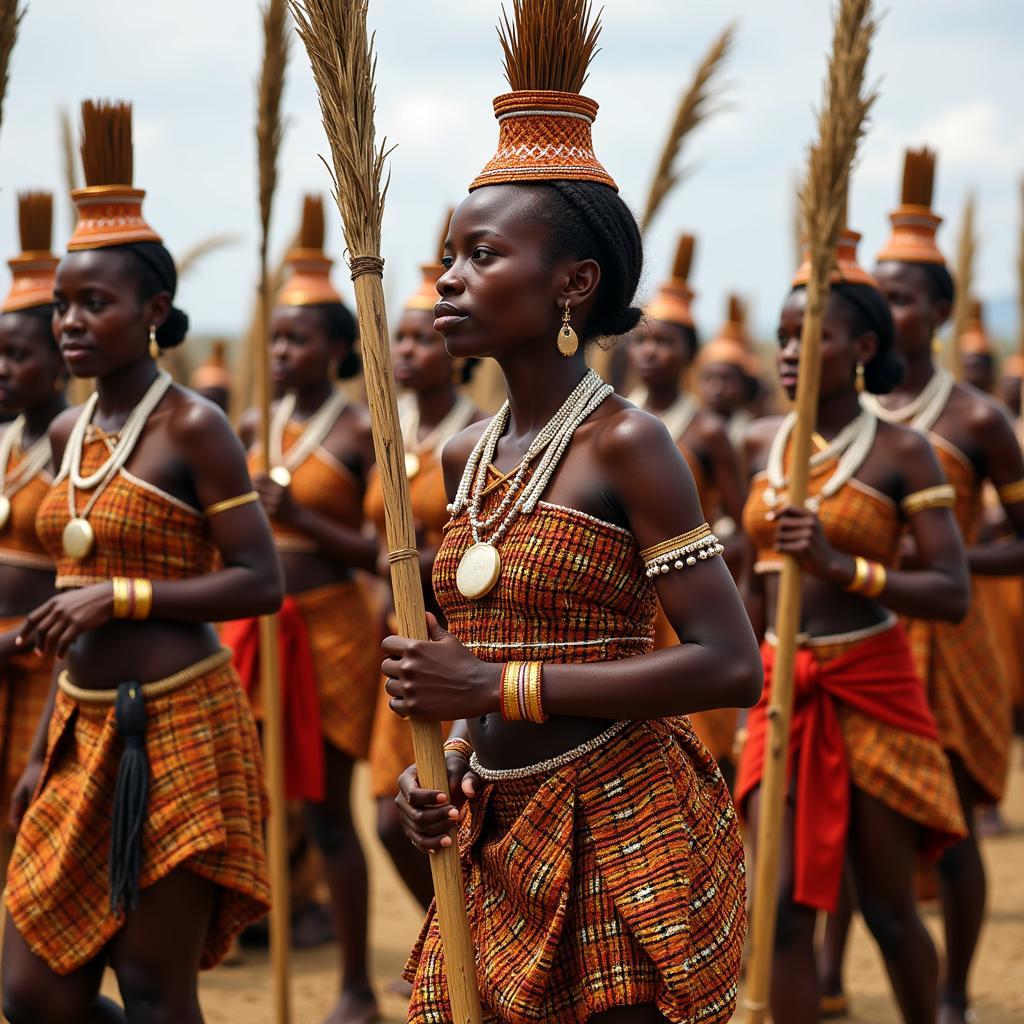 Zulu women participating in the Reed Dance ceremony
Zulu women participating in the Reed Dance ceremony
Today, the Zulu people are active participants in South Africa’s diverse society, contributing to the country’s cultural landscape while navigating the complexities of a changing world. Their history, traditions, and resilience continue to fascinate and inspire, offering a glimpse into the enduring spirit of one of Africa’s most prominent ethnic groups.
Exploring Further: FAQs about the Zulu
What language do the Zulu people speak?
The Zulu people primarily speak isiZulu, a Bantu language that is part of the Nguni language family.
What is the significance of cattle in Zulu culture?
Cattle hold significant cultural and economic value in Zulu society, representing wealth, status, and playing a central role in traditional ceremonies and rituals.
Do the Zulu people still have a monarchy?
Yes, the Zulu nation recognizes a monarch, currently King Misuzulu Zulu, who plays a significant role in cultural preservation and community leadership.
Where can I learn more about African cultures?
Explore the diverse cultural expressions found across the continent, from the intricate beadwork designs to the captivating rhythms of African dance forms.
Are there opportunities to purchase authentic Zulu crafts?
Yes, you can find exquisite examples of African beadwork for sale, supporting Zulu artisans and bringing a piece of their cultural heritage into your home.
This is just a glimpse into the fascinating world of the Zulu African tribes. Their rich history, vibrant culture, and enduring traditions continue to captivate and inspire, offering a testament to the diversity and resilience of African heritage.
Need more information or assistance? Contact us at:
Phone Number: +255768904061
Email: kaka.mag@gmail.com
Address: Mbarali DC Mawindi, Kangaga, Tanzania
Our dedicated customer service team is available 24/7 to assist you.
